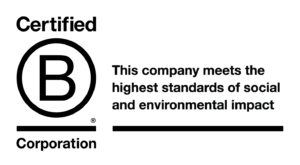For the last 100 years, the role of the human resources department has been fairly static, but HR is now entering a new era—and there are many changes ahead.
Though change is certainly challenging, it’s also innovating static ideas and processes. It’s an exciting time in HR. By understanding current and future changes, you can coast through the challenges and become a more current and effective HR manager.
Why the Role of the Chief HR Officer Is Changing
There are many reasons why the role of the Chief HR Officer is changing. These reasons relate to the rapidly changing business environment of today. Factors like the rise of part-time work and fluctuating talent needs are playing a big role.
Today’s workforce looks a lot different than it did even ten years ago. Ten years ago, you may have hired employees for traditional, nine-to-five jobs. Now, you may notice you’re hiring more part-timers. That’s because most of the labour market’s gains are coming from surges in the numbers of part-time positions.
The rise of the gig economy is another big change for human resources. Many workers are now taking on contract positions instead of full-time jobs. In fact, just over one-third of the workforce is made up of independent contractors, temporary workers, and other contingent workers.
Some industries rely more heavily on part-time or contract employees. For example, high-tech companies are known for hiring short-term employees for their projects. In some high-tech companies, more than half of the workers are part-timers or contract workers.
If you’re responsible for hiring in a project-based industry, you already know talent needs fluctuate often. Since talent needs are dependent on projects, it’s hard to predict future needs. If a project goes ahead, you’ll need to find great workers on short notice. If the project doesn’t go ahead, you won’t need to find anyone. This makes it seem impossible to predict the workers you’ll need next week, let alone next quarter.
The increasing availability of marketplace data is another reason the role of the Chief HR Officer is changing. In the past, it was hard for human resources departments to collect good data about their workforces. You needed to dig through spreadsheets or mountains of paperwork to analyze the workforce. Now that HR departments are embracing more high-tech systems, data is easier to collect.
What Business Leaders Want from HR
Due to all these factors, business leaders’ expectations of their HR leaders are changing. It’s no longer enough to just recruit the right employees. The changing world of work means HR leaders now have to find the right employees at the right times. That’s a much harder task.
Since HR leaders now have access to so much data, business leaders want them to use it. Almost 70 percent of business leaders want their HR leaders to use data and analytics to make workforce decisions. This is a new responsibility for HR leaders, and it requires a different skill set.
Another common expectation is to evaluate decisions based on workforce costs. When you were mostly hiring long-term, full-time employees, hiring costs weren’t as much of a concern.
Now that you’re hiring part-time or contract workers throughout the year, the costs add up quickly. You need to pay to post ads. Then you need to spend hours reading applications, interviewing applicants, and calling references. If training is required, that’s yet another cost to think about.
Obstacles for Chief HR Officers
Since the role of Chief HR Officers has changed so drastically, you may feel overwhelmed about all the new tasks you need to take on. Don’t think about these changes as obstacles, however. Think about them as opportunities as you adapt to your new role.
The backgrounds of Chief HR Officers may be one of these obstacles that overwhelm you. Many Chief HR Officers have a background in human resources (understandably). They’re experts in the traditional roles HR departments are expected to play.
Now that the role of the HR department is changing however, new skills are starting to be valued. Chief HR Officers who have a strong business background, or a background in data or analytics, can thrive in this new environment. They can use workforce analytics to help predict who to hire and when. Chief HR Officers with traditional HR backgrounds may not know what to do with all the workforce analytics they’ve gathered. Of course, they can learn, but needing to learn a brand-new discipline is an obstacle.
Consider this an opportunity to learn new knowledge, HR practices, and processes that will help you become a stronger Chief HR Officer.
How HR Professionals Can Adapt
Don’t let the changing expectations for the HR profession get you down. There are many things Chief HR Officers can do to rise to the occasion and adapt to all their new responsibilities.
One thing you can do is learn more about workforce analytics so you can adapt to the new way of hiring. There are many HR analytics courses you could take to increase your knowledge. Top universities like Wharton University and MIT offer online courses in HR analytics and data analytics. Your company may pay for you to take these continuing education courses. With your new knowledge, you’ll be better able to keep up with all the changes happening in HR.
If you’re not able to take any courses, there are other options. HR professionals can turn to technical recruiting agencies for help. These agencies specialize in finding top talent on short notice, which helps you keep up with your company’s ever-changing talent needs. They’re able to find candidates quickly because they already have a large network of talented professionals. The recruiters can work their networks to find good candidates, even candidates who are already employed.
When you find out you need to hire part-time or contract workers right away, you can simply contact the recruiting agency. A recruiter will send you the workers you need, and your company can get projects started on time. Once the project is done, you can just send all the workers back to the agency.
You may be worried that working with a recruiting agency would be too expensive. Surprisingly, the opposite is true. Working with an agency can actually cost less than handling recruiting on your own. That’s because recruiting firms minimize unnecessary hiring expenses. They also free up more of your time—and as you know, time is money.
As an HR professional, you may feel uncomfortable with the idea of outsourcing short-term and contract recruiting. There’s no need to feel that way. Often, it makes sense to outsource this task. You can focus on the things you know best, like hiring full-time employees and monitoring compliance. When you can focus on things you excel at, both you and your company will benefit.
Click here to read more of our insightful blog posts.







